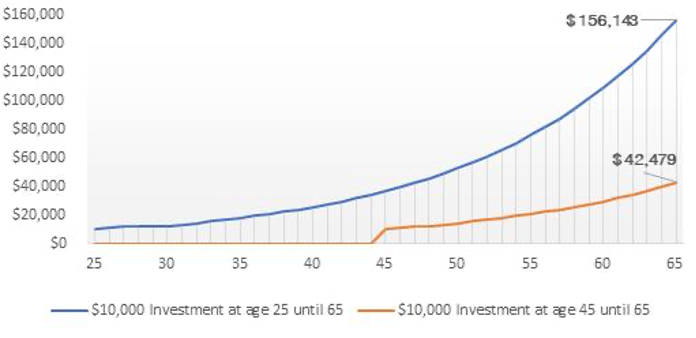Be Average
Napoleon Bonaparte was a French military leader and emperor who conquered much of Europe in the early 19th century; he had a quote to define military genius: “The man who can do the average thing when all those around him are going crazy.”
I read this quote for the first time in Morgan Housel’s book The Psychology of Money; my mind immediately went to what has been transpiring in the stock market as of late; particularly the boom in recent retail trading.
When the market fell in February, I believed this to be one of the greatest investing opportunities for my age demographic—the Millennial and Gen-Z cohort. For years, I thought that we had been priced out of the equity market. Yet, from all the uncertainty, an opportunity emerged for us to set sound financial goals and buy into the equity market at these lower price levels.
While many of my peers saw this as an opportunity to set budgets, figure out their investment goals and invest with a longer time horizon, many did not. Since the market correction in February, I have been bombarded with questions from many of my friends, and family, asking me in casual conversation simply, “What stocks should I buy right now?”
Usually, I would be thrilled to answer investment questions or if I did not have the answer, lead them to an Associate at Ciccone McKay or Louisbourg Investments who are more than willing to help. However, when I ask about their goals, risk tolerance or time horizon, I am often looked at with bewilderment.
They assume that picking individual equities is an investing strategy.
It is not.
The next question I am asked is, “When should I buy? And when should I sell?” Their second assumption is that timing the market is what good investing is all about.
It is not.
History has shown us that speculative buying and market timing is a bad investment strategy.
The particular issue with these questions is they revolve around only today. What to do right now, how to take advantage of the pandemic, where to earn the quickest buck? But today or next week isn’t important with investing; what is important is how you invest when others are going crazy. Truthfully, the best investment strategy today is to be average.
I want to make myself clear, this is not a hit piece on day trading; in fact, if this recent surge in stock picking has led you to take charge of your finances, ask the important questions, and look toward the future—I am all for it. The purpose of this article is to reiterate the importance of getting properly invested and focusing on the long-term.
History tells us the best thing that can be done with our money is to be invested.
I want to quote a passage from Morgan Housel’s The Psychology of Money:
-
Consider what would happen if you saved $1 every month from 1900 to 2019.
You could invest that $1 into the U.S stock market every month, rain or shine. It doesn’t matter what economists are screaming about a looming recession or a new bear market. You just keep investing. Let’s call that investor Sue.
But maybe investing during a recession is too scary. So perhaps you invest your $1 in the stock market when the economy is not in a recession, sell everything when it’s in a recession and save your monthly dollar in cash, and invest everything back into the stock market when the recession ends. We will call this investor Jim.
Or perhaps it takes a few months for a recession to scare you out, and then it takes a while for to regain confidence before you get back in the market. You invest $1 in stocks when there’s no recession, sell six months after a recession ends. We’ll call you Tom.
How much would these three investors end up with over time?
Sue ends up with $435,551
Jim has $257,386
Tom has $234,476Sue wins by a mile.
Morgan Housel goes on to explain that between 1900 and 2019, there are 1,428 months. Of those months, only 300 of them were in or near a recession. So, by being invested during the 22% of the time the economy was near or in a recession, focusing on the long-term, Sue ends up with almost three quarters more money than both Jim and Tom.
Our reactions during the bad times have the greatest impact
As investors, the way we react during the few months that everything is going crazy will have a greater impact on our lifetime returns than anything we will do during the next bull market rally.
Staying committed to a long-term investment strategy is scary and hard. Look at today, with the level interest rates are at around the world and the continued uncertainty and increasing volatility. The investing landscape has never felt more formidable.
However, there is no alternative when it comes to risk assets—you have to be invested.
You can’t bury your money or keep it all in cash because doing nothing involves risk. There is genuinely no such thing as a risk-free rate of return. And doing nothing with your money is likely the biggest risk of all.
So, you must invest your money in risk assets. You will likely lose money when the economy is near or in a recession. There is no bulletproof way to completely hedge risk, especially when you’re trying to grow your initial capital.
Human nature leads us to pursue our own self-interests. With investing that is counterproductive, people will try to learn and earn the highest investment returns. This leads to bad trades, disappointing strategies and a rush of retail and options trading.
However, as I have stated, that is not good investing. Chasing the highest return is not a good investment strategy. The highest returns on single stock pick likely cannot be duplicated. What can be replicated is a constant return, and a strategy you can stick with over a long period of time. That is when the true power of compounding will take form.

The most important investing skill is patience over time.
There are books on economic cycles, trading strategies, and sector bets. But the most powerful book should be called Shut Up and Wait. It is one page with a long-term chart of economic growth.
-Morgan Housel
Investing is not picking an individual stock and praying for a double digit return on your money. Good investing is not moving in and out of the market. Good investing is not panicking when the market fluctuates. Good investing is not following the crowd.
Good investing is knowing your goals, setting a sound strategy and let compounding work its magic. Good investing is being average.
We would love to chat with you about how we can help you to set and reach your financial goals. As always, please feel free to reach out by phone to 604-688-5262 or online.
Source
Housel, M. (2020). The Psychology of Money:Timeless Lessons on Wealth, Greed, and Happiness. Harriman House.

